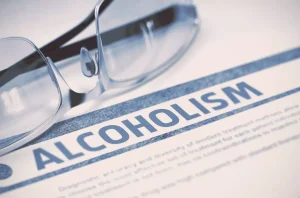
The final step in 12-step programs like Alcoholics Anonymous (AA) and Narcotics Anonymous (NA) is to spread the message to other people living with addiction. By helping others into recovery, you’re reminded of your own progress, shake off any complacency in your sobriety, stay accountable, and find happiness and fulfillment. One of the best TED Talks for addiction, this 10-minute video clip from former Miss USA, Tara Conner, is all about her personal experience with substance use. Attitude describes the way we think or feel about something or someone.
Start Making Changes

It serves as a driving force, pushing individuals to their recovery path. It’s the inner urge and determination to beat addiction and make life changes. Motivation gives the strength and perseverance to battle challenges, withstand temptations, and stay devoted to the recovery procedure. Although extrinsic motivators can recovery motivation spark initial action, intrinsic motivation is key for sustaining long-term recovery. Intrinsic motivation is more sustainable than extrinsic motivation, as it comes from within and is not reliant on external factors. This internal drive can provide lasting motivation for maintaining sobriety and overcoming challenges.
- As he continues to face his own visible and invisible scars, he innately has to acknowledge the wounds of others and encourage them in their own healing process.
- To combat these feelings, try to remove yourself from the triggering situation.
- Part of a supportive network helps individuals feel connected and not alone.
- However, many rehab centers in the United States can help people overcome substance use problems and co-occurring disorders.
- It’s about learning to navigate life’s challenges without the crutch of addiction and finding joy in sobriety.
- These stories illustrate that recovery is not just about abstaining from substances – it’s about transformation.
How to Stay Motivated During Recovery
A well-known quote in Alcoholics Anonymous is, “To keep it, you must give it away.” Helping others who are struggling can give people hope and strength to continue with their own recovery. It allows people to recognize where they are and how far they have come in their journey. It could be as little as offering a ride to a meeting or setting up chairs and making coffee, or it could be as much as becoming a sponsor or acting as a guest speaker at a local event. By having a structured schedule of healthy and positive activities from day to day, you can create a sense of order in your life. This is also a great way to improve your goal-setting and goal-reaching work.

Staying Sober Requires Commitment

There are numerous resources, support groups, and treatment options that can guide you on your journey to recovery. For those still in the grips of addiction, these stories serve as beacons of hope. They prove that no matter how far one has fallen, recovery is always possible. Each narrative of triumph over addiction chips away at the feelings of hopelessness and isolation that often accompany substance abuse. Sophia entered a trauma-informed addiction treatment program, where she learned to process her trauma in healthy ways. Through EMDR therapy, mindfulness practices, and group support, she began to heal both her addiction and the wounds of her past.
Each person who finds recovery becomes a living proof of hope, inspiring others to take that first, crucial step towards change. Over the past two decades, she’s faced numerous challenges – divorce, the death of her parents, financial struggles – all while maintaining her sobriety. Sophia’s substance abuse quickly spiraled out of control, jeopardizing her job and alienating her support system. It wasn’t until she overdosed and woke up in the hospital that she realized she needed help for both her addiction and her trauma.
- Setting clear goals related to the purpose of recovery provides a roadmap for progress.
- Addressing these neurological and cognitive changes is crucial in maintaining motivation during addiction recovery.
- Attitude affects your relationships, your health, your self-image and your self-confidence.
- Identify the root causes of a lack of motivation and address underlying issues.
- Get in the habit of spending time with people who lift you up and bring out your best.
- Don’t worry at this point about the number of goals or how feasible they may be.
Next, take a little time to generate a list of more specific personal recovery goals. Don’t worry at this point about the number of goals or how feasible they may be. Finding inspiration to get and stay sober can allow individuals to experience a number of health, social and financial benefits. Frequent drug https://ecosoberhouse.com/ or alcohol abuse can result in addiction, a chronic brain disease that causes compulsive behaviors despite knowing the harmful consequences. People with addiction may lie or steal to support their drug or alcohol use. Substance use disorders can also result in heart disease, cancer and mental illness.

- Intrinsic motivation is important to success, but it can be hard to keep up.
- After all, it’s not just about reaching a finish line—it’s about the resilience, learning, and growth that happens along the way.
- You would regret terribly not doing everything possible to bring about change.
- The key here is that on the level of the brain, the natural need for connection is one of the few things that has a biological pull equal, or nearly so, to the addiction.
- Now five years sober, Sophia works as a domestic violence counselor, using her experience to help other survivors find healing without turning to substances.
- This type of motivation is more sustainable and enduring compared to extrinsic factors such as legal issues or social influence.

Leave a Comment